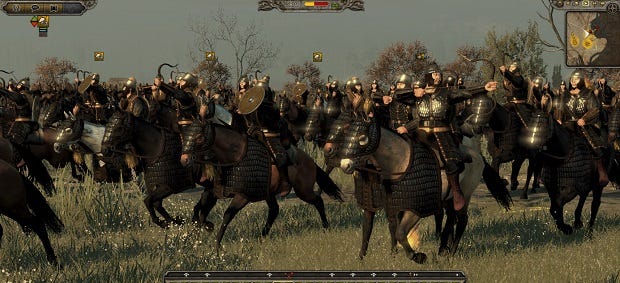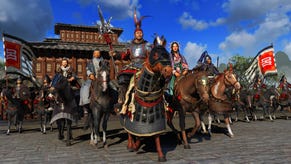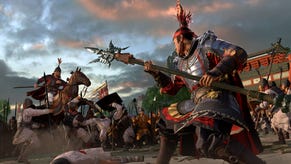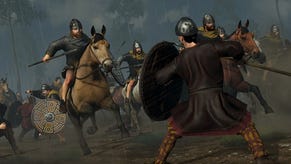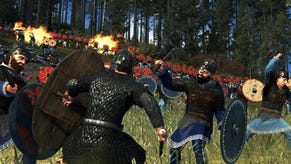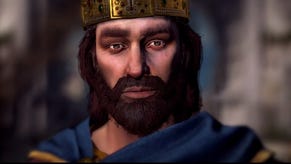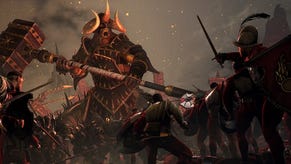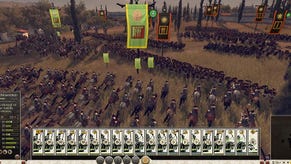Hands On: Total War - Attila
Winter is Coming
The last time I wrote a preview of a Total War game - excluding spin-offs - I was excitable. I wanted nothing more than to go Roamin' with the Romans across enormous, epic campaigns, and the small slice of the game I played filled me with confidence that the short portion I'd enjoyed was a fitting representation of the eventual end product. I was wrong.
Playing Attila it's easy to see evidence of a franchise revived, not only by technical fixes but through the insertion of new mechanics that reflect a strong central theme. The early signs are good and there's a great deal of promise, but this is a game about the end times, and until the full scope of its campaigns can be seen a cautious approach is advisable.
At release, Rome II had serious problems. Many of them were related to issues that had been chomping through the series like woodworm for years but the scale of the new sandbox campaign seemed to magnify them. There was a far-too-tempting analogy to be drawn between the expansion and fracturing of the Roman Empire and the apparently insupportable bloat of the game, with its prolonged load times and stumbling AI.
Creative Assembly acknowledged that all was not well, with words, patches and the Emperor Edition of the game, which I decided to spend some time with over the holidays. While the load times are still arduous, on my slightly creaky machine at least, Rome II is a much finer game than it was at launch. I didn't go back to the original release to perform thorough analysis, but I did spend about thirty hours playing when I'd intended to dip in for a quick look. That
Beyond the technical issues, Rome II still feels quite loose though - as baggy as that one knitwear gift that you know you'll never wear but can't be bothered to throw away, just in case. The next game in the series, Attila, should be a little more snug thanks to a central theme of decline and ruin that has been translated into an in-game slide toward the end times.
Attila bings snugness through the medium of apocalyptic climate change. In this game that is about survival rather than expansion, wars will be fought on many fronts but the one continuous theatre of conflict will be the cold front.
There are plenty of other changes, including a reworked interface, the return of family trees and dynamic fire during the series' usual enormous battles, but it's the integration of the apocalyptic theme into long-term strategies that sparked my interest. Strategy games usually task players with expansion of some sort but Attila represents a world teetering on the brink of collapse. In Rome, you could build an Empire - in Attila, you'll be struggling to survive as the world freezes over.
As campaigns develop, the snowline moves south, steadily, causing longer winters, which impact on resource management, army movement and battle tactics. Some factions are better suited to survival than others and there's an entirely new method of city-building in survival to be found in the nomadic wanderings of certain factions. With the ability to pick up sticks and move to fertile ground, or away from warzones, these playable entities are well-equipped to avoid the worst of the elements.
They won't have it easy though. According to the team, the difficulty level will be pitched relatively high, with some factions, such as the Western Roman Empire, beset on all sides from turn one, and seemingly doomed to failure. Players will find ways to survive and to prosper, of course, because even with the encroaching doom offering the sense of a narrative, Attila is still, essentially, a sandbox strategy game.
I played the game at the end of the year, when the amount of daylight in any 24 hour period could be measured with an eggtimer. It seemed a suitable accompaniament to 2014's final breaths and I found much to admire. The map is beautiful and the ability to develop and relocate settlements when playing as a Horde faction makes the world seem more like a thing to manipulate, changeable and reactive, rather than a backdrop. I'm also pleased by the strength of character and devious plotting opened up by family trees, which provide an extra level of emergent narrative and engagement.
All good. I didn't find a great deal of time to play with the dynamic fire, which will apparently sweep through settlements, causing damage that is reflected in updates on the strategic map when a battle ends. I also didn't get a chance to see how effectively some of the central features are implemented, particularly the development of the changing climate and the long-term strategies that might emerge when using a horde faction.
That's because the preview build ends after 40 turns. It's enough to enjoy the taste but not enough to know how much time my computer will spend chewing on its thoughts between turns in the mid- and end-game. I'm remarkably interested in how the end-game will work because Attila appears to be about something - the descent into the Dark Ages, the effect of invasion and climate change, the inevitable end of all things.
When I first sat down to play, I expected to react with a slight shrug. Even after playing Emperor Edition for a good while, I'm not entirely convinced that all of the technical issues that troubled my time with Rome II have been eradicated, but I'm impressed by Attila's focus and commitment to a central thesis. If the question posed by Rome II was "What would Rome: Total War look and behave like with modern technology driving it?", Attla seems to be built on a rather more interesting proposition - "How does a genre and series that thrives on expansion deal with a turn toward decay and decline?"
I like that question and I hope that Attila is able to formulate a robust response. But I don't know if it will because 40 turns only reveals the first flakes of winter. I spoke to Creative Assembly at great length about what they hope to achieve with the game, what they took away from the experience fo Rome II and how the series has changed over time. I came away impressed and excited to see more, and we'll have the full transcript of that conversation later this week.
Attila is promising and the new additions could run deep, changing the character of the strategic map and the way players interact with it. That's the intention and this is a case where listing new features isn't as important as understanding the thematic significance of the new features. There's a focused goal at work here and an attempt to play with the Total War formula in a way that should make this far more than a pseudo-expansion.
I'm intrigued. But I've been here before and this time, let's not bring a pinch of salt to the table - let's bring enough to pay an entire legion with*. There's not long until release on February 17th and it'll probably take at least a week with the full game after launch before the extent of the new features and flaws can be seen. I want to see the darkness enveloping my empire, I want to take my horde from one end of the map to the other, burning and pillaging as I go. I want to push the simulation to its extremes and see which bits break. It's ok for some bits to break, that's what happens, but will they break in a way that makes me interested to see more? If so, I'll probably end up losing weeks of my life to the game, as I did wit the first Rome and Medieval.
I also want to play as the Huns, to see which strategies suit them and if it's possible to create the radical alternate histories that the series makes me hungry for. I want to eradicate empires and rebuild them in the cold, dark end of everything. But that will have to wait and so shall we, until the full picture is revealed.
Look out for more details and thoughts in an extensive interview later this week.
*This salt-based salary gag brought to you by the dubious etymological practices of Pliny rather than Actual History.
